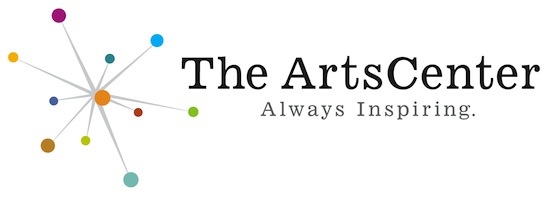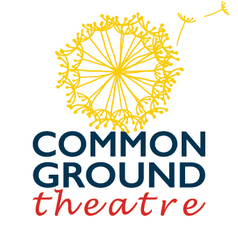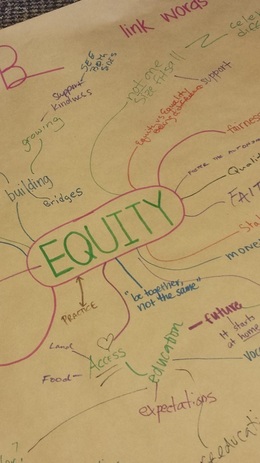 Common Ground Theatre and ArtsCenter Stage, along with MOJOAA Performing Arts Company, in association with Ladies of Triangle Theatre, are hosting two town-hall style meetings on Saturday, March 28 at The ArtsCenter in Carrboro and on Saturday, April 4 at Common Ground Theatre in Durham to continue the discussion about identity and community that was started with the February performances of HANDS UP: 6 Playwrights, 6 Testaments. These town hall meetings will serve to gather ideas and individuals across all spectrums of identity, profession, and location. Together, we will create a new work to be performed in late June at The ArtsCenter in Carrboro. LoTT will collaborate with interested participants to develop stories that may take a variety of performance forms (e.g., theater, dance, visual art). The goal is to identify the breadth and depth of our own, local experiences; determine how these experiences connect or diverge from the national conversation; and ultimately map a path to positive and sustainable changes in our communities. After the performances of HANDS UP, audience members shared thoughts and experiences regarding race, equity, and social justice. The town hall meetings are a place to share more stories, reflect on how experiences are similar across communities, and see new perspectives on life in the Triangle. Professional and amatuer artists of all disciplines are encouraged to attend and bring ideas, subjects, or content to share. Members of the producing team will be on hand to lead the creative discussion, as well as returning and new invited guests from the community. #LoTTRiseUp For more information, please contact Devra Thomas (Ladies of Triangle Theatre) at 919.384.7817 or devra at cgtheatre.com QUICK FACTS
0 Comments
Regrettably, I won't be able to attend the production of American Theater Company’s annual 10 x 10 Play Festival. Bright and early tomorrow morning, I'm heading to D.C. for first rehearsal of the Wonderful Wizard of Oz at Adventure Theatre. So, all good and wonderful things, but it's a busy time! I'm excited to hear how it goes and will certainly share anything that I learn. Now, as you know, I've been connecting with the wonderful playwrights being featured and decided to respond as well. In this interview, I talk about a bit what inspired me to get involved in theatre, the relevant themes of my plays, and the role of theatre as a tool for social change. Click here to learn more about the 10 x 10 Festival and I hope you enjoy! 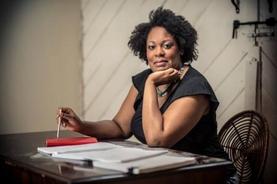 Why did you decide to get into theatre? Was there someone or a particular show that inspired you? I’ve always loved theatre. I credit both my mother’s love of MGM musicals and a TYA touring production of Jack and the Beanstalk that got me hooked. I wrote plays, poems, short stories, and performed in high school. In college, I was frustrated by the lack of performance opportunities for students of color and decided to focus on playwriting in addition to screenwriting. This way, I could create roles for actors of color. This way, I could creatively channel my frustration and disappoint into action. Next, tell me a little bit about your writing process. Do you have any writing rituals? Do you write in the same place or in different places? Yes! I find music and images that speak to the world of the play and the characters. I do a lot of research on the socio-economic and geographical politics of the characters. I also study the foodways of each character. Food teaches so much about people. Also, for 8 years, I wrote in the same place. I lived in a lovely basement apartment in D.C. and had a secretary desk. While it had lovely windows, I could make it dark as night. I’d write by candlelight. Now, I live on the 3rd floor. My desk faces a large window, which gets direct sun and moonlight. It’s a new and different energy. I have to learn what works in this new space. Why was it important for you to be a part of American Theatre Company’s 10 x 10 Festival? I’ve been following the incidents surrounding Ferguson closely since day one. I read everything I could find and watched the live feeds of the protest. With the Ferguson Moment, I joined the efforts of my colleagues Claudia Alick, Mica Cole, and Megan Sandberg-Zakian to support theatre artists in Ferguson and across the nation in organizing a national artistic response to all that was happening. Of course, understanding that national tragedies raise awareness around local issues, I knew it was important to create a space for dialogue in my new community. Three weeks after moving to Chapel Hill, I worked with Triangle theatre artists Jules Odendahl-James, Monet Marshall, Ana Radulescu, Jeri-Lynn Schulke, Devra Thomas, and Kathryn Hunter Williams to produce the New Black Fest’s Hands Up. In addition to the performance, we are hosting a series of town halls and will be working with members of the community to create a response to issues of social injustice and racial oppression happening right here. However, in the midst of all of this, I hadn’t created my own response until ATC asked me to take part. Through these two 5 minute plays, I was able to focus my anger, fear, and disappointment in a creative way. Tell me about your plays. What do you hope the audience walks away thinking about after experiencing it? My plays are called Black Lives, White Chalk and A New Sense, A New Direction. They feature two mothers; one is white and one is black. Neighbors, best friends from college, and mothers to teenaged sons, they are forced to face the harsh realities of racial difference and privilege. I hope that audience walk away encouraged to stay active, engaged and informed of these issues. What role does theater have in advocacy work? Theatre is a powerful tool for social justice and change. It’s a space that holds multiple truths and allows us to explore the human condition. By using theatre as a catalyst for discussion, we can create empathy, affirm experiences, raise awareness, hold folks accountable for action and inaction, and offer a way through. What next for you as a writer? Where can we follow your work? Well, I'm fortunate to have a few things lined up. My adaptation of the Wonderful Wizard of Oz will receive a world premiere at Adventure Theatre-MTC (April 3 to May 25). A reading of Noms de Guerre will be presented by WAM Theatre on Sunday, June 14th at 3:00pm under the direction of Tony Award nominee Jayne Atkinson. Next season, Virginia Stage Company will produce the area premiere of The Hampton Years. I’m also working on a new play, AMONG THESE WILD THINGS, which explores the intersection of art, science and religion. ou can follow me at jacquelinelawton.com About the PlaywrightJACQUELINE E. LAWTON was named one of 30 of the nation's leading black playwrights by Arena Stage’s American Voices New Play Institute. Her plays include: Anna K; Blood-bound and Tongue-tied; Deep Belly Beautiful;The Devil’s Sweet Water; The Hampton Years; Ira Aldridge: the African Roscius; Lions of Industry, Mothers of Invention; Love Brothers Serenade (2013 semi-finalist for the Eugene O’Neill Theater Center’s National Playwrights Conference); Mad Breed; Noms de Guerre; and Our Man Beverly Snow. Ms. Lawton received her MFA in Playwriting from the University of Texas at Austin, where she was a James A. Michener Fellow. She is a 2012 TCG Young Leaders of Color award recipient, National New Play Network (NNPN) Playwright Alum, and member of Arena Stage's Playwrights' Arena. She is also a proud member of the Dramatist Guild of America. 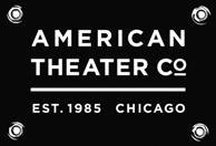 10 outstanding playwrights tackle race, police brutality, and community in Ferguson, New York City, and around the world. 10 inspired directors bring their work to life. Join us on March 9 at 7:30pm for a uniquely challenging one-night-only engagement at the American Theater Company, as we are proud to present our annual short plays festival, 10x10. Tickets are free but seats will fill up fast. To make a reservation, send us an email at [email protected]. Due to high demand, we are only able to reserve up to two seats per request. At the door, we suggest a $10 donation to help us cover the cost of supporting the festival, though we welcome you to pay what you can. This Year's Playwrights: Jeff Augustin. Kristiana Rae Colón. Matthew-Lee Erlbach. Jacqueline E Lawton. Bonnie Metzgar. Dominique Morisseau. Lucas Neff. A Rey Pamatmat. Akin Salawu. Aurin Squire. Our Directors: Kaiser Ahmed. Grace Cannon. Amanda Delheimer Dimond. Matt Dominguez. Azar Kazemi. Reed Motz. Hutch Pimentel. Tlaloc Rivas. Samuel Roberson. Conner Wilson. In preparation for American Theater Company’s annual 10 x 10 Play Festival, I connected with the featured playwrights about their careers in the theatre, the relevant themes of the play(s), and the role of theatre as a tool for social change. Click here to learn more about the 10 x 10 Festival and please enjoy this wonderful interview with Dominique Morisseau. 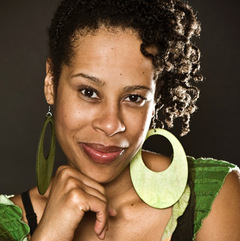 Jacqueline Lawton: Why did you decide to get into theatre? Was there someone or a particular show that inspired you? Dominique Morisseau: It was always in my bones. My mother exposed me to plays and performance art at a very young age. Anytime dance companies or shows came to town, she took me. I saw Stephanie Mills originate the role of Dorothy in The Wiz. I’m sure that seeped in me. I was hooked from youth. JL: Next, tell me a little bit about your writing process. Do you have any writing rituals? Do you write in the same place or in different places? DM: Music is always my ritual. I find music that speaks to the world, the time period, or the mood of the piece. It often gets used in the play itself. But even if not, it evokes something in me. But I write many different places. My living room couch. My kitchen counter while I’m standing. My desk. My bed. A random coffee table at a shop. The Lark Play Development Center Writers Room. Those are some of my fav places to write. JL: Why was it important for you to be a part of American Theatre Company’s 10 x 10 Festival? DM: If they hadn’t gotten to me first, I was sure someone would, and I would have to respond. We write because we are trying to articulate something or make sense of the world around us. It’s hard to make sense of our current system of injustice and social rage, but it’s important to give it voice and space. JL: Tell me about your play. What do you hope the audience walks away thinking about after experiencing it? DM: My play (there is just one for me) is called JEZELLE THE GAZELLE. It is a one-woman piece about a little girl who is running a race on her block. But it is really about her politics and how she sees the world from the point of view of being a girl/woman and what it means for her role in justice. I hope they’ll take in the perspective of how the youth are impacted by these things, not just young Black men, but everyone who shares collective space and community with them. JL: What role does theater have in advocacy work? DM: Theater creates the emotional buy in to advocacy work. Without an emotional relationship to the work, the work doesn’t get completed. JL: What next for you as a writer? Where can we follow your work? DM: I’m working on a three-play cycle about my hometown of Detroit, called “The Detroit Projects”. You can find the first of the series, DETROIT ‘67, in Atlanta or Minneapolis next. The second play in the cycle, PARADISE BLUE, will be done at Williamstown Theatre this summer. And be on the lookout for the last play in the cycle, SKELETON CREW, coming to NY later this year. Outside of my 3-play cycle, my play SUNSET BABY will have it’s Chicago premiere at Timeline Theatre. And you can follow me on Facebook or twitter: @domorisseau About the PlaywrightDominique Morisseau, Playwright and Actress, got her BFA in Acting from the University of Michigan and her start as a performance poet in the Detroit community of Harmonie Park. She has since become a noted award-winning playwright in NYC and is currently developing a 3-play cycle about her hometown, entitled “The Detroit Projects”. The inaugural play Detroit ’67, about the riots/rebellion in 1967, originated at the Public Theater in New York City and extended at Classical Theatre of Harlem with the National Black Theatre. The production was nominated for 8 Audelco Theatre Awards including Best Playwright. She is a Jane Chambers Playwriting Award honoree, a two-time NAACP Image Award recipient, honoree for the Primus Prize by the American Theatre Critics Association, and winner of the Stavis Playwriting Award. U of M has also awarded her with their Emerging Leader Award, and the city of Detroit has honored her with a Spirit of Detroit award. Most substantially, Dominique has recently been awarded the esteemed Edward M. Kennedy Prize for Drama. She is an artist that believes wholeheartedly in the power and strength of community. 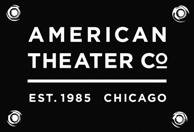 10 outstanding playwrights tackle race, police brutality, and community in Ferguson, New York City, and around the world. 10 inspired directors bring their work to life. Join us on March 9 at 7:30pm for a uniquely challenging one-night-only engagement at the American Theater Company, as we are proud to present our annual short plays festival, 10x10. Tickets are free but seats will fill up fast. To make a reservation, send us an email at [email protected]. Due to high demand, we are only able to reserve up to two seats per request. At the door, we suggest a $10 donation to help us cover the cost of supporting the festival, though we welcome you to pay what you can. This Year's Playwrights: Jeff Augustin. Kristiana Rae Colón. Matthew-Lee Erlbach. Jacqueline E Lawton. Bonnie Metzgar. Dominique Morisseau. Lucas Neff. A Rey Pamatmat. Akin Salawu. Aurin Squire. Our Directors: Kaiser Ahmed. Grace Cannon. Amanda Delheimer Dimond. Matt Dominguez. Azar Kazemi. Reed Motz. Hutch Pimentel. Tlaloc Rivas. Samuel Roberson. Conner Wilson. In preparation for American Theater Company’s annual 10 x 10 Play Festival, I connected with the featured playwrights about their careers in the theatre, the relevant themes of the play(s), and the role of theatre as a tool for social change. Click here to learn more about the 10 x 10 Festival and please enjoy this wonderful interview with Jeff Augustin. 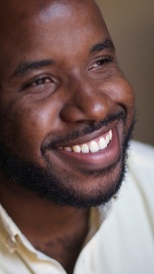 Jacqueline Lawton: Why did you decide to get into theatre? Was there someone or a particular show that inspired you? Jeff Augustin: I didn’t get into theater until college, where my professor Dr. Scott Cummings encouraged me to pursue playwriting. But what inspired me to take a theater class in the first place was Gus Edward’s play Lifetime on the Streets. I read it my senior year of High School, in the prologue he writes “these are the stories behind the faces we see, but never get to know, their hopes, loves, dreams and desires.” Growing up in a Haitian community, I never saw my mom’s story or my neighbors on TV. I think theater has the capability to bring us into the lives of people we don’t see in mainstream culture. JL: Next, tell me a little bit about your writing process. Do you have any writing rituals? Do you write in the same place or in different places? JA: I don’t really have any rituals. But if I stay home to write I’ll end up watching Netflix and taking long naps. So I mostly write in coffee shops. I tend to write in one place for 2-3 hours and move to another. I’m very familiar with all the coffee shops in my neighborhood, and am very grateful to them if any baristas are reading! JL: Why was it important for you to be a part of American Theatre Company’s 10 x 10 Festival? JA: Typically when you write about a current issue it can take time for a theater to read it and if you’re lucky if they produce it, by which point it usually feels dated. There was something empowering about being asked to respond to a current event, one that (unfortunately) speaks so directly to the experience of my brother and male cousins. JL: Tell me about your plays. What do you hope the audience walks away thinking about after experiencing it? JA: My pieces are Sidetrack and Stop & Frisk, which follow an interracial gay couple in Chicago. I want the audience to think about how events like Ferguson affect our personal relationships and how easy it is to get caught up in the sensationalism and forget what’s at stake. JL: What role does theater have in advocacy work? JA: I’m the Playwright-in-Residence at the Roundabout Theater and I’m involved in the Education Department. It has been important to me to have a connection with the students in the program because when I was growing up I didn’t know theater was available to people who look like me or grew up in places like Overtown, Miami. It’s by individual artists—particularly artists from minority backgrounds— serving our communities that theater really can have an affect, so I hope to do more of that throughout the rest of my career. JL: What next for you as a writer? Where can we follow your work? JA: I currently have a play, Little Children Dream of God, playing at the Roundabout Underground through April 5. I’m also a co-writer of That High Lonesome Sound, which is part of this years Humana Festival. About the PlaywrightJeff Augustin is the Tow Foundation Playwright-in-Residence at the Roundabout Theatre Company, where his play Little Children Dream of God is receiving its world premiere. He has been produced by the Humana Festival (Cry Old Kingdom; co-author, That High Lonesome Sound) and Western Washington University (Corktown). His work has been developed at The Ground Floor at Berkeley Repertory Theatre, La Jolla Playhouse (Krik Krak or The Last Tiger in Haiti); Eugene O’Neill National Playwright’s Conference (Little Children Dream of God); and American Conservatory Theater (in the crowding darkness). He is a New York Theatre Workshop 2050 Fellow, a recipient of the Barrie and Bernice Stavis Playwriting Award and two-time recipient of the Lorraine Hansberry Award. Jeff is currently under commission from Manhattan Theatre Club and Roundabout. BA: Boston College, MFA: UC San Diego. 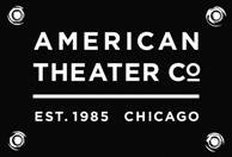 10 outstanding playwrights tackle race, police brutality, and community in Ferguson, New York City, and around the world. 10 inspired directors bring their work to life. Join us on March 9 at 7:30pm for a uniquely challenging one-night-only engagement at the American Theater Company, as we are proud to present our annual short plays festival, 10x10. Tickets are free but seats will fill up fast. To make a reservation, send us an email at [email protected]. Due to high demand, we are only able to reserve up to two seats per request. At the door, we suggest a $10 donation to help us cover the cost of supporting the festival, though we welcome you to pay what you can. This Year's Playwrights: Jeff Augustin. Kristiana Rae Colón. Matthew-Lee Erlbach. Jacqueline E Lawton. Bonnie Metzgar. Dominique Morisseau. Lucas Neff. A Rey Pamatmat. Akin Salawu. Aurin Squire. Our Directors: Kaiser Ahmed. Grace Cannon. Amanda Delheimer Dimond. Matt Dominguez. Azar Kazemi. Reed Motz. Hutch Pimentel. Tlaloc Rivas. Samuel Roberson. Conner Wilson. In preparation for American Theater Company’s annual 10 x 10 Play Festival, I connected with the featured playwrights about their careers in the theatre, the relevant themes of the play(s), and the role of theatre as a tool for social change. Click here to learn more about the 10 x 10 Festival and please enjoy this wonderful interview with Matthew-Lee Erlbach. 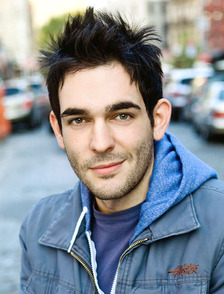 Jacqueline Lawton: Why did you decide to get into theatre? Was there someone or a particular show that inspired you? Matthew-Lee Erlbach: Second City showed me you could make a career out of making people laugh. Then I found the theatre, really, in high school and undergrad. So, I had a lot of teachers and definitely my family inspiring me along the way. The show that really did me in, however, was the Fiona Shaw/Deborah Warner MEDEA that toured from the UK. It was epic and intense. And expertly acted by Ms. Shaw. I’ll never forget that feeling of collective breathlessness—literally, the audience is at the edge of their seats: the light is this raw, stark, ugly, bare white; this loud siren or something is blaring; and she runs by with those limp, bloody kids under her arms like small dead animals. And then! Blood just streaks across that sheet out of nowhere. We were all just like, “What the fuck just happened here?” And the audience, we’re all looking at each other, laughing uncomfortably, there’s some chatter, disbelief, joy (at this murder!), but really just an overall shock that we had witnessed this moment in time of pure theatricality and total realism. It was magical. I became a witness that night and have never turned back. JL: Next, tell me a little bit about your writing process. Do you have any writing rituals? Do you write in the same place or in different places? MLE: I work out and I meditate. And I write whenever and wherever I can because it takes me a while to break in. And when I do, I just go. My typical full day of writing will be 9a at this one particular coffee shop, then I need to leave there by 1p or 2p to go to another one for a change of pace, then I’ll go home and write in bed from about 5p-7p, if I can, and try not to spend any more time in front of a screen, which is hard because I am quick to fall into a Wikipedia or YouTube spiral. JL: Why was it important for you to be a part of American Theatre Company’s 10 x 10 Festival? MLE: My whole reason for being an artist is to contribute to the conversation, affect it, move it forward, challenge it. So when the opportunity came up—and having had a great experience with the last one I did with ATC—it was a no-brainer. Also, I live in NYC now but I grew up in Rogers Park. Peterson and Maplewood. And it was a really diverse neighborhood. I mean, we had everybody. Just on our block, Peterson to Glenwood, were white families, black families, fresh-off-the-boat German, Swedish, Syrian, Filipino, Mexican, Pakistani, and Japanese families. We even had a cat lady. So right off the bat, the mythology I grew up with was one of multitudes and diversity. It was pretty incredible when I look back and really think about that because I don’t know if that still exists. Oh, and the kicker was, we all knew each other—we had block parties every summer. We were actually a community. I don’t mean to make it out to be a Utopia or anything but it bears mentioning because we have become so culturally isolated from one another. And we’ve lost that curiosity about one another. And with that lack of curiosity, we lose empathy. And with that lost empathy, we lose a fully dimensional representation of who we are as individuals and are instead rendered as flat groups: the Blacks, the Whites, the Jews, the Russians. We are having an existential crisis of cultural identity and kindness. So this festival is important because I deconstruct Representation in my play REPRESENTATION and I deconstruct Words in my play WORDS. Most importantly, I feel very strongly and have many ideas about what, exactly, Ferguson represents at this moment and in the arc of our national history and future. JL: Tell me about your plays. What do you hope the audience walks away thinking about after experiencing it? MLE: My plays are REPRESENTATION and WORDS. I hope audiences walk away with questions about representation and also words. JL: What role does theater have in advocacy work? MLE: Well, theatre, at its core, is a form of community organizing. In that same regard, theatre is a social utility. And anytime you bring a community together in this public utility, you are pollenating ideas, emotions, and sometimes actions—which is all a part of advocacy. The audience, then, become advocates for the characters—they want them to win—so on a technical level, when you buy your ticket and sit down at a theatre, you are already going to be an advocate, you just don’t know all the details of what you’ll be asked to do. So I think theatre has a really important role in advocacy work because like WAITING FOR LEFTY or ANGELS, there’s great opportunity to have that social intercourse with the community. That said, I worry about theatre in advocacy work because I tend to tune out if I feel I’m being preached to ideologically. I’m not always in the mood for that. And I don’t know audiences, on a broad scale are interested in that either. Some are, for sure. But I think theatre is at its best when those ideas, those angry, passionate ideas, are dealt with nuance. That said, NORMAL HEART on Broadway beat the shit out of me emotionally, so. You know. I go both ways. JL: What next for you as a writer? Where can we follow your work? MLE: My play SEX OF THE BABY, a comedy, will be going up Off-Bway this year, directed by Michele Bossy. Beyond that, I’m working on a tragicomic peoples’ history of the American Revolution in verse with original music, called KING GEORGE III, which will have a workshop at Ars Nova. And finally, my play THE DOPPELGÄNGER, this farce about the division of a copper mine in the Central African Republic is in development with Moritz Von Stuelpnagel right now. If there’s any one play I write that I could get kidnapped for, I’m really hoping it’s this one. About the PlaywrightMatthew-Lee Erlbach is an actor and writer from Chicago, currently living in NYC. Most recent playwright credits include the Off-Bway world-premiere of his critically-acclaimed solo play HANDBOOK FOR AN AMERICAN REVOLUTIONARY (Tony Speciale, dir) at the GYM at Judson, called "Revelatory, impressive, surprising, and beautifully rendered" by the New York Times; EAGER TO LOSE, A BURLESQUE FARCE IN RHYMING VERSE, extended Off-Bway at Ars Nova/nominated for Off-Broadway Alliance Award (Wes Grantom/Portia Krieger, dirs). Recent readings/workshops include THE DOPPELGÄNGER at Studio 42 (Moritz Von Stuelpnagel, dir); KEVIN LAMB at the Vineyard (Michael Berresse, dir.); and A NEIGHBOR IN THE AREA at GYM at Judson (Wes Grantom, dir). Upcoming: Off-Bway Premiere of SEX OF THE BABY (Michelle Bossy, dir.) and the workshop of his tragicomic peoples’ history of the American Revolution, KING GEORGE III at Ars Nova. He has received development, residencies, and fellowships at Williamstown, SPACE on Ryder Farm, The Vineyard, MCC, Primary Stages, Woodshed Collective, The Lark, Nuyorican, Ohio Theatre, Tisch/NYU Grad, Ars Nova, and the GYM at Judson, among others. He is the recipient of a Puffin Grant, thrice Finalist for Juilliard's Lila Acheson Fellowship, and a Finalist for the O'Neill, SoHo Rep. He is a member of Ars Nova's 2014/2015 Play Group. www.Matthew-Lee.com 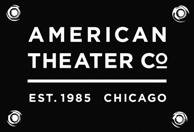 10 outstanding playwrights tackle race, police brutality, and community in Ferguson, New York City, and around the world. 10 inspired directors bring their work to life. Join us on March 9 at 7:30pm for a uniquely challenging one-night-only engagement at the American Theater Company, as we are proud to present our annual short plays festival, 10x10. Tickets are free but seats will fill up fast. To make a reservation, send us an email at [email protected]. Due to high demand, we are only able to reserve up to two seats per request. At the door, we suggest a $10 donation to help us cover the cost of supporting the festival, though we welcome you to pay what you can. This Year's Playwrights: Jeff Augustin. Kristiana Rae Colón. Matthew-Lee Erlbach. Jacqueline E Lawton. Bonnie Metzgar. Dominique Morisseau. Lucas Neff. A Rey Pamatmat. Akin Salawu. Aurin Squire. Our Directors: Kaiser Ahmed. Grace Cannon. Amanda Delheimer Dimond. Matt Dominguez. Azar Kazemi. Reed Motz. Hutch Pimentel. Tlaloc Rivas. Samuel Roberson. Conner Wilson. In preparation for American Theater Company’s annual 10 x 10 Play Festival, I connected with the featured playwrights about their careers in the theatre, the relevant themes of the play(s), and the role of theatre as a tool for social change. Click here to learn more about the 10 x 10 Festival and please enjoy this wonderful interview with Lucas Neff. 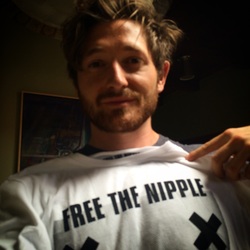 Jacqueline Lawton: Why did you decide to get into theatre? Was there someone or a particular show that inspired you? Lucas Neff: I got into theatre because my university misprocessed my application and put me in the wrong department. I just stuck with it because I hate paperwork, and my mom said something along the lines of “You’re a loudmouth, fuck it, give it a go.” She’ll say she didn’t swear, but she’s probably lying. JL: Next, tell me a little bit about your writing process. Do you have any writing rituals? Do you write in the same place or in different places? LN: I write wherever. But I only like to write on my computer because of my super sweet lightning fast typographic skills. Thank you, seventh grade computer processing class. I have no rituals. I’m not a big believer in rituals. I think they have the potential to narrow us into predictability and repetitiveness. Embrace neuroplasticity, I say. Mix it up. Surprise yourself. Write in a new way. Maybe you’ll have a different kind of idea. I dunno. JL: Why was it important for you to be a part of American Theatre Company’s 10 x 10 Festival? LN: I was excited to be asked to lend a voice to a conversation that I think is deeply relevant and necessary. I don’t know how necessary or relevant my voice is in that conversation. But I’m thrilled to be a part of it. And I hope I contribute rather than detract. JL: Tell me about your plays. What do you hope the audience walks away thinking about after experiencing it? LN: How To Make A Black Boy Disappear and Respectability Politics are just attempts to try and focus the conversation on what I think are some of the root ills of our racial woes in this county. We love to discuss symptoms and specifics, but often we overlook the more personally confronting ugly truths that function as origin and cause for these social sicknesses. We are the problem. There is unchecked inherent bias at play and it needs to be torn down. I hope you walk thinking “I am a racist. What can I do to not be one?” JL: What role does theater have in advocacy work? LN: Every social space has a need for active advocacy. Theatre is generally a more acknowledged home for advocacy because it is almost entirely a form of social theorizing. The depiction and dissection of a world through the lens of its author. We expect these conversations there. But they should be everywhere. JL: What next for you as a writer? Where can we follow your work? LN: What’s next? Oh boy, the whole goshdarn world awaits, doesn’t it? Um. I’m writing a book right now. The Autobiography of a Small Bird. I hope there are people who will enjoy reading it as much I’m enjoying writing it. There’s lots of death in it. And wondering. About the PlaywrightLucas Neff is a human being from Chicago. He has acted in some plays and a couple TV shows, most notably Raising Hope on Fox. He's also written some plays, one of which, The Last Duck, was produced in Chicago. He writes other things too. Sometimes he does comedy. He thinks bios are silly and would like it very much if you're reading this right now, to spend the next several seconds thinking of ways to be kinder to those around you. You can find him on Twitter here: @reallucasneff 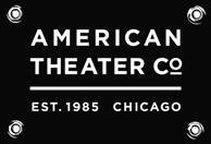 10 outstanding playwrights tackle race, police brutality, and community in Ferguson, New York City, and around the world. 10 inspired directors bring their work to life. Join us on March 9 at 7:30pm for a uniquely challenging one-night-only engagement at the American Theater Company, as we are proud to present our annual short plays festival, 10x10. Tickets are free but seats will fill up fast. To make a reservation, send us an email at [email protected]. Due to high demand, we are only able to reserve up to two seats per request. At the door, we suggest a $10 donation to help us cover the cost of supporting the festival, though we welcome you to pay what you can. This Year's Playwrights: Jeff Augustin. Kristiana Rae Colón. Matthew-Lee Erlbach. Jacqueline E Lawton. Bonnie Metzgar. Dominique Morisseau. Lucas Neff. A Rey Pamatmat. Akin Salawu. Aurin Squire. Our Directors: Kaiser Ahmed. Grace Cannon. Amanda Delheimer Dimond. Matt Dominguez. Azar Kazemi. Reed Motz. Hutch Pimentel. Tlaloc Rivas. Samuel Roberson. Conner Wilson. In preparation for American Theater Company’s annual 10 x 10 Play Festival, I connected with the featured playwrights about their careers in the theatre, the relevant themes of the play(s), and the role of theatre as a tool for social change. Click here to learn more about the 10 x 10 Festival and please enjoy this wonderful interview with Bonnie Metzgar. 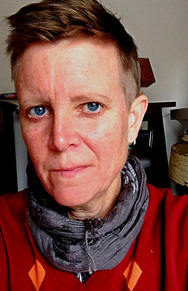 Jacqueline Lawton: Why did you decide to get into theatre? Was there someone or a particular show that inspired you? Bonnie Metzgar: I grew up in a town with a dinner theater. The first show I ever saw there was SHOWBOAT. It was exciting, and kind of scary. Mostly, I loved the music. That’s how I came into the theater – I played saxophone in the pit band of musicals. JL: Next, tell me a little bit about your writing process. Do you have any writing rituals? Do you write in the same place or in different places? BM: I like to write in cafes. I choose a place and stick with it for the whole play. Right now, I’m working on two writing projects so I split my writing time between the Coffee Studio in Andersonville and Reno in Logan Square. JL: Why was it important for you to be a part of American Theatre Company’s 10 x 10 Festival? BM: As a white ally who also identifies as LGBTQ, I am committed to showing up for this movement to stop race-based police violence as a supporter in the streets, or as an artist creating cultural dialogue, as in ATC’s 10 x 10. JL: Tell me about your plays I’m SO HUNGRY and I CAN’T BREATHE. What do you hope the audience walks away thinking about after experiencing it? BM: That the gun pointed at a black man in America never goes away. It is always there every time a black man speaks to a white man, even if they are friends drinking a beer on a Friday night. White folks just doesn’t see it. JL: What role does theater have in advocacy work? BM: Theater gets bodies into rooms together. That’s the first step in creating change -- get us to look into each other’s eyes. Creating live work that sparks debate and outrage (and sometimes laughter) has been the aim of theater artists for centuries who are interested in social justice. Theater also can give a voice to those traditionally excluded from the mainstream media, and put them center stage. JL: What next for you as a writer? Where can we follow your work? BM: I will have a reading of a new play this summer at the Goodman Theater, along with the other members of the resident playwrights unit. About the PlaywrightBonnie Metzgar is a playwright, director, dramaturg and producer. She is currently a member of the Goodman's 2014-15 Playwrights Unit. From 2008-2013, Metzgar served as Artistic Director of About Face Theatre and was proud to work on behalf of LGBTQ artists at a theater dedicated to advancing the national dialogue on sexuality and gender. In 2013-2014, Metzgar was awarded the Carl Djerassi Fellowship in Playwriting at the University of Wisconsin, Madison. Her play YOU LOST ME was a 2014 Finalist for the Eugene O’Neill National Playwrights Festival, and was selected for the 2014 Great Plains Theater Conference in Omaha. Currently, Metzgar is continuing work on a new performance piece commissioned by the NEA that was inspired by the life of trans Civil War soldier Albert Cashier with composer Tamara Roberts. Recent directing credits include LET ME DOWN EASY by Anna Deavere Smith starring Usman Ally at American Theater Company and WALK ACROSS AMERICA FOR MOTHER EARTH by Taylor Mac for Red Tape as part of the 2015 Garage Rep at Steppenwolf. Metzgar is on the National Advisory Committee for Howlround at Arts Emerson and has taught at a number of universities including Brown, University of Chicago and currently at DePaul. She received her MFA in Playwriting from the University of Iowa and her BA from Brown. 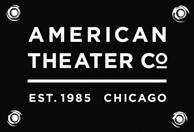 10 outstanding playwrights tackle race, police brutality, and community in Ferguson, New York City, and around the world. 10 inspired directors bring their work to life. Join us on March 9 at 7:30pm for a uniquely challenging one-night-only engagement at the American Theater Company, as we are proud to present our annual short plays festival, 10x10. Tickets are free but seats will fill up fast. To make a reservation, send us an email at [email protected]. Due to high demand, we are only able to reserve up to two seats per request. At the door, we suggest a $10 donation to help us cover the cost of supporting the festival, though we welcome you to pay what you can. This Year's Playwrights: Jeff Augustin. Kristiana Rae Colón. Matthew-Lee Erlbach. Jacqueline E Lawton. Bonnie Metzgar. Dominique Morisseau. Lucas Neff. A Rey Pamatmat. Akin Salawu. Aurin Squire. Our Directors: Kaiser Ahmed. Grace Cannon. Amanda Delheimer Dimond. Matt Dominguez. Azar Kazemi. Reed Motz. Hutch Pimentel. Tlaloc Rivas. Samuel Roberson. Conner Wilson. In preparation for American Theater Company’s annual 10 x 10 Play Festival, I connected with the featured playwrights about their careers in the theatre, the relevant themes of the play(s), and the role of theatre as a tool for social change. Click here to learn more about the 10 x 10 Festival and please enjoy this wonderful interview with Aurin Squire. 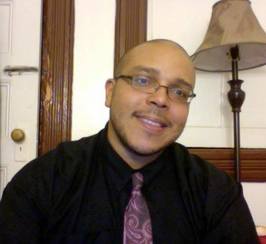 Jacqueline Lawton: Why did you decide to get into theatre? Was there someone or a particular show that inspired you? Aurin Squire: I decided to get into theatre when I was in college. I would go to see my friend’s in shows because it was cheaper than a movie. I was in a creative writing in the media focus my last 2 years and I had to take a quarter (Northwestern is on a 3 quarters a year system rather than 2 semesters) of playwriting. I received a lot of encouragement from our teacher (Susan Booth) and then went away for the summer and read August Wilson’s “Ma Rainey’s Black Bottom” while out in LA. That’s when I decided to write a full-length play and send it in. This was the play that got me a workshop at a small theatre in Chicago and gave me a scholarship to go to grad school. JL: Next, tell me a little bit about your writing process. Do you have any writing rituals? Do you write in the same place or in different places? AS: If I’m writing without an outline, then usually I begin with a riff. It can be a word, sound, phrase, or image. It’s like a single thread that appears in empty space and then I start weaving until I have a whole story. JL: Why was it important for you to be a part of American Theatre Company’s 10 x 10 Festival? AS: I discovered theatre while in Chicago. And I found that theatre tends to be more meat-and-potatoes and about social issues. I love that kind of theatre. I just saw “The Iceman Cometh” which was a Goodman Theatre transfer to BAM, and “Rasheeda Speaking” which also came out of Chicago. Both productions were so rich and layered. American Theatre Company is doing great work that fits into the mold of progressive art in the Windy City. JL: Tell me about your plays. What do you hope the audience walks away thinking about after experiencing it? AS: The first play I finished was “Mississippi Goddamn” and it’s about a couple watching the news, rediscovering the Nina Simone song that the play is named after, and how they work through the police shooting that’s similar to Ferguson. It’s a reflective piece with an older couple that I want to slip under the audience’s skin. The second piece is “Putting Wings on a Pig” and it’s about two black cops trying to work and not get entangled in office politics, as well as the occasional run in with fellow white officers. As the title implies I want this to really get in people’s faces about the racism that’s so severe in some precincts, black cops are more scared of their white colleagues than of the criminals. JL: What role does theater have in advocacy work? AS: Theatre is the original herald of truth. Beyond the daily news and gossip, theatre took the events of the day and expounded upon their greater meaning and context. In this age of rapid news and shock, I think theatre is vital to ground us in the larger trajectory of human history that is bending before us. JL: What next for you as a writer? Where can we follow your work? AS: I’m in my last semester at Juilliard and have a few different fellowships in New York City. I have an artist in residence at Brooklyn Arts Exchange and I present my year-long project in May. I’ve been working on “The Gospel According to F#ggots” which is a radical queer reinterpretation of the Bible. It’s a multimedia piece that’s in verse. Here is my BAX page: http://artistservices.bax.org/residencies/aurin-squire/ And then I have a residency at National Black Theatre in Harlem where I’ll be doing workshops throughout 2015 for “The Zoohouse” which is a radical absurd comedy set in a dystopia that has asylums for the ‘black and criminally insane.’ The Zoohouse is one of those places and we see how history, suppression, and expression play themselves out in this very warped way. About the PlaywrightAurin Squire is an award-winning playwright and reporter. He is a two-time recipient of the 2014 Lecomte du Nouy Prize from the Lincoln Center for the Performing Arts and is in his second year of the Lila Acheson Wallace American Playwriting Fellowship at The Juilliard School. For the 2014-2015 season he has fellowships at The Dramatists Guild of America, the National Black Theatre, the Brooklyn Arts Exchange, and a Royal Court Writers’ Residency in London. He is the winner of the Act One Writing Contest at Lincoln Center Theatre. Squire graduated with honors from Northwestern University and worked for various publications like ESPN, the Miami Herald, Chicago Tribune, The New Republic, and Talking Points Memo. His political comedy "Obama-ology" opened at the Juilliard New Play Festival in September 2014 and then opened at Finborough Theatre in London in December 2014. He has been a guest artist and lecturer at Gettysburg College, Malloy College, and New School University. His plays have been produced at venues like Abingdon Theatre, ArcLight Theatre, Ars Nova, Barrington Stage Company, Brooklyn Arts Exchange (BAX), Cherry Lane, Lincoln Center Lab, National Hispanic Cultural Center. 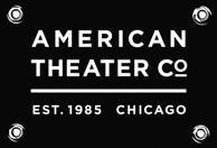 10 outstanding playwrights tackle race, police brutality, and community in Ferguson, New York City, and around the world. 10 inspired directors bring their work to life. Join us on March 9 at 7:30pm for a uniquely challenging one-night-only engagement at the American Theater Company, as we are proud to present our annual short plays festival, 10x10. Tickets are free but seats will fill up fast. To make a reservation, send us an email at [email protected]. Due to high demand, we are only able to reserve up to two seats per request. At the door, we suggest a $10 donation to help us cover the cost of supporting the festival, though we welcome you to pay what you can. This Year's Playwrights: Jeff Augustin. Kristiana Rae Colón. Matthew-Lee Erlbach. Jacqueline E Lawton. Bonnie Metzgar. Dominique Morisseau. Lucas Neff. A Rey Pamatmat. Akin Salawu. Aurin Squire. Our Directors: Kaiser Ahmed. Grace Cannon. Amanda Delheimer Dimond. Matt Dominguez. Azar Kazemi. Reed Motz. Hutch Pimentel. Tlaloc Rivas. Samuel Roberson. Conner Wilson. In preparation for American Theater Company’s annual 10 x 10 Play Festival, I connected with the featured playwrights about their careers in the theatre, the relevant themes of the play(s), and the role of theatre as a tool for social change. Click here to learn more about the 10 x 10 Festival and please enjoy this wonderful interview with A. Rey Pamatmat. 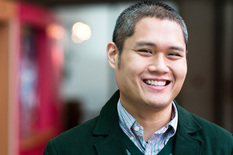 Jacqueline Lawton: Why did you decide to get into theatre? Was there someone or a particular show that inspired you? A. Rey Pamatmat: I grew up in a very isolated part of Michigan and community theatre was a way to do something outside of school where I could meet people of all ages, from all walks of life. My first role was Eeyore in The House at Pooh Corner. It wasn’t until seeing a Broadway preview of Angles in America that I thought about writing, though. Mr. Kushner’s play was really the one that made me realize anything was possible onstage. JL: Next, tell me a little bit about your writing process. Do you have any writing rituals? Do you write in the same place or in different places? ARP: I write in the morning, and I tend to write in public (cafés, writers’ rooms, public atriums, parks). Other than that, it’s just me scribbling in a notebook. Nothing fancy. JL: Why was it important for you to be a part of American Theatre Company’s 10 x 10 Festival? ARP: As anyone who is friends with me on Facebook will attest (perhaps with a hint of annoyance), I had a complete meltdown when the events in Ferguson began. I was shocked in those first weeks when there was almost no coverage of the mishandling of the initial shooting, the community’s grief, and the insanity of the disproportionate police reaction. I began posting pictures from Twitter and whatever news articles I could find on my Facebook timeline. It’s significant that a lot of stories about injustice and economic inequality are not being reported or they’re being reported with so much bias against protestors, people demanding justice, and the general public (I took part in some Occupy Wall Street actions when the New York Times among others was trying their hardest to ignore or defame that movement; I’m also quite obsessed with Edward Snowden who was rebuffed by major news outlets when he approached them with the NSA leaks). Being part of the 10 x 10 Festival this year is another way of keeping these events in the mind of the public, and of adding perspective that counters established organs, more concerned lately with survival than they are with their duties or the truth. JL: Tell me about your plays. What do you hope the audience walks away thinking about after experiencing it? ARP: I am in a Dark Place Today and Unable to Write a Play is about a day when I was in a dark place and unable to write a play (ha ha). Instead the events of many recent killings of unarmed black men were running in a loop in my head. Rather than fight that, I memorialized it and the many versions of those images that I kept imagining and re-imagining. Imagined images are also part of Winning, which was a response to Darren Wilson’s characterization of Michael Brown and too many people’s easy acceptance of that description. My hope with both is that people think about the way perception and perhaps even delusion are shaping reality into a world in which none of us want to live. JL: What role does theater have in advocacy work? ARP: I don’t have a very articulate answer for this question. I’ve never considered my plays to be advocacy; I just tend to frequently write on questions, issues, and ideas that are political. Theater can humanize events so that those who are perhaps less politically-minded can understand them and even begin to participate in movements toward justice. Theatre’s contribution to the development of empathy isn’t necessarily advocacy, but I do think an empathic public is essential for activists to be heard. JL: What next for you as a writer? Where can we follow your work? ARP: My play after all the terrible things I do will be playing at Boston’s Huntington Theater starting in May, and we’ve already started design and casting for it. Hutch Pimentel just mounted Edith Can Shoot Things and Hit Them here in Chicago with First Floor Theater, and I’m thrilled that Hutch will also be directing my 10 x 10 plays as well! Edith is currently running at the Bay Area’s Crowded Fire Theatre and will also have a June run in Boston mounted by Company One. If you head to Boston in June, as a matter of fact, you can catch both Edith and terrible things when they run concurrently for a few weeks. You can also always find information about these plays and other work I have in development at www.areypamatmat.com. About the PlaywrightA. Rey Pamatmat’s play after all the terrible things I do premiered at the Milwaukee Repertory Theatre and runs at next at The Huntington Theatre in 2014 – ’15. His play A Power Play; Or, What’s-its-name was presented at the 2014 O’Neill Playwrights Conference, his second residency there after Thunder Above, Deeps Below in 2008. Rey’s play Edith Can Shoot Things and Hit Them premiered at the Humana Festival, received the Steinberg/ATCA New Play Citation and nominations for 2013 GLAAD Media and Lambda Literary Awards, and was featured at Guadalajara’s 2014 Semana Internacional de la Dramaturgia. Productions: Thunder Above, Deeps Below (Second Generation), A Spare Me (Waterwell), DEVIANT (the Vortex), High/Limbo/High (HERE); awards: ’12/’13 Hodder Fellowship, ’11/’12 PoNY Fellowship, Princess Grace Award, Princess Grace Special Projects Grant, NYFA Playwriting Fellowship, E.S.T./Sloan Grant. Rey is Co-Director of the Ma-Yi Writer’s Lab. BFA: NYU, MFA: Yale School of Drama. 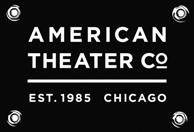 10 outstanding playwrights tackle race, police brutality, and community in Ferguson, New York City, and around the world. 10 inspired directors bring their work to life. Join us on Monday, March 9th at 7:30pm for a uniquely challenging one-night-only engagement at the American Theater Company, as we are proud to present our annual short plays festival, 10x10. Tickets are free but seats will fill up fast. To make a reservation, send us an email at [email protected]. Due to high demand, we are only able to reserve up to two seats per request. At the door, we suggest a $10 donation to help us cover the cost of supporting the festival, though we welcome you to pay what you can. This Year's Playwrights: Jeff Augustin. Kristiana Rae Colón. Matthew-Lee Erlbach. Jacqueline E Lawton. Bonnie Metzgar. Dominique Morisseau. Lucas Neff. A Rey Pamatmat. Akin Salawu. Aurin Squire. Our Directors: Kaiser Ahmed. Grace Cannon. Amanda Delheimer Dimond. Matt Dominguez. Azar Kazemi. Reed Motz. Hutch Pimentel. Tlaloc Rivas. Samuel Roberson. Conner Wilson. In preparation for American Theater Company’s annual 10 x 10 Play Festival, I connected with the featured playwrights about their careers in the theatre, the relevant themes of the play(s), and the role of theatre as a tool for social change. Click here to learn more about the 10 x 10 Festival and please enjoy this wonderful interview with Akin Salawu. 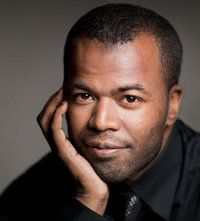 Jacqueline Lawton: Why did you decide to get into theatre? Was there someone or a particular show that inspired you? Akin Salawu: At 4 years old my parents took me to see The Wiz and I was smitten. Out of the blue a few years ago, I got an email from my preschool teacher recalling me desperately fighting to get my classmates (who were all older than me) to perform The Wiz. I apparently failed all year and have not tackled The Wiz since. JL: Next, tell me a little bit about your writing process. Do you have any writing rituals? Do you write in the same place or in different places? AS: Usually it begins with me scribbling notes on the backs of receipts on the subway. Then I sit at my iMac and make sense of my pile of receipts. Each receipt yanks me back to the particular day that the idea gifted itself to me. Instrumental music is usually playing as well; unless it’s Nina Simone. You make an exception for her. JL: Why was it important for you to be a part of American Theatre Company’s 10 x 10 Festival? AS: As a Black American man, I’ve had more than my fair share of unearned harassment from police officers so this was not only a cathartic experience but an opportunity to really respond to the inhumane manner in which Black Male life is demonized. With all the seething anger in and around each of us, it was really liberating to step back and recalibrate. I also can’t wait to be in the space with a bunch of socially conscious artists gathered together for this festival. JL: Tell me about your plays. What do you hope the audience walks away thinking about after experiencing it? AS: “the mice will play” was the first one I wrote. The noise about Michael Brown’s dangerous living body seemed to silence the treatment of his dead body left in the street for hours. I hope the audience will question their own perceptions of big scary Thuggish Negros with breathe in our lungs. I had the City of Prague Philharmonic Orchestra’s rendition of James Horner’s End Credits theme to the film Glory playing which really freed me to let Juice fly. "Locatelli's Caprice in D major” was inspired by my disdain for subway performers. My subway rides are for reading or writing. But this one young guy played the shit outta his violin and his mastery shifted my understanding of him. As well as the rest of his kind. This piece is about what it takes to achieve those shifts in understanding. Locatelli's Caprice in D major” was written in silence. I haven’t written in silence since the days of dead AA batteries in my cassette tape walkman. JL: What role does theater have in advocacy work? AS: Narratives teach us how to live better lives; how to be better to ourselves and to each other. I’ve worked in politics where you have 8 people doing something while 800 bitch and moan about the way it got done. . Thanks in part to cable news and social media we are becoming a culture that consumes itself with sideline chatter about events somewhere over there. Theater is here. Theater is now. Theater is immediate. Living people bring theater to life right before your eyes. And when you experience it, you are a part of it. It becomes a part of you. Music infects us without our permission. Theater infects us with our permission. If the audience gives you their permission, you can lift them up. And that’s when you open them up. Battered down people batter others down. Lifted up people, lift others up. Opened people open others up. We in the theater must earn permission to open people up. JL: What next for you as a writer? Where can we follow your work? AS: The Public Theater had a playwright/ composer speed dating event where I met Australian composer, Greta Gertler Gold. We just began Ars Nova’’s UNCHARTED musical theater residency to continue developing our original musical, “The Real Whisper”. About the PlaywrightNew Jersey born, Brooklyn-based playwright & filmmaker Akin Salawu founded and ran ergo student theater troupe as a Stanford University undergraduate. This earned him the Sherifa Omade Edoga Prize for mounting culturally diverse theater. Akin is also a two-time Tribeca All Access Winner with a Screenwriting MFA from Columbia University. Akin was a member of The Public Theater’s Inaugural Emerging Writers Group and wrote Chapter 5 in the book, “The Obama Movement” while working on the President’s 2008 campaign. Akin just began a musical theater residency in Ars Nova's UNCHARTED with Australian composer Greta Gertler Gold. 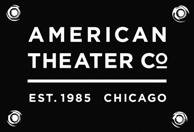 10 outstanding playwrights tackle race, police brutality, and community in Ferguson, New York City, and around the world. 10 inspired directors bring their work to life. Join us on Monday, March 9th at 7:30pm for a uniquely challenging one-night-only engagement at the American Theater Company, as we are proud to present our annual short plays festival, 10x10. Tickets are free but seats will fill up fast. To make a reservation, send us an email at [email protected]. Due to high demand, we are only able to reserve up to two seats per request. At the door, we suggest a $10 donation to help us cover the cost of supporting the festival, though we welcome you to pay what you can. This Year's Playwrights: Jeff Augustin. Kristiana Rae Colón. Matthew-Lee Erlbach. Jacqueline E Lawton. Bonnie Metzgar. Dominique Morisseau. Lucas Neff. A Rey Pamatmat. Akin Salawu. Aurin Squire. Our Directors: Kaiser Ahmed. Grace Cannon. Amanda Delheimer Dimond. Matt Dominguez. Azar Kazemi. Reed Motz. Hutch Pimentel. Tlaloc Rivas. Samuel Roberson. Conner Wilson. |
My BlogI'm a playwright, dramaturg, and teaching artist. It is here where you'll find my queries and musings on life, theater and the world. My posts advocate for diversity, inclusion, and equity in the American Theatre and updates on my own work. Please enjoy!
Categories
All
Archives
June 2020
Reading List
|
